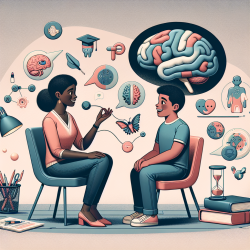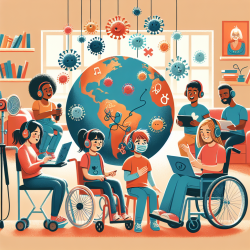As practitioners in the field of speech-language pathology, it is imperative to stay informed about the latest research to make data-driven decisions that lead to the best outcomes for children. A recent study titled "Parents’ experiences of information-seeking and decision-making regarding complementary medicine for children with autism spectrum disorder: a qualitative study" provides valuable insights into how parents navigate the complex landscape of complementary and alternative medicine (CAM) for their children with autism spectrum disorder (ASD).
Key Findings from the Study
The study, conducted through semi-structured interviews with 21 parents, revealed three main themes:
- Parents’ experiences of researching CAM treatments: Parents often feel overwhelmed and alone when researching CAM treatments for their children. They act as 'lay researchers,' dedicating significant time and effort to understand potential treatments.
- Navigating CAM information and practices: Parents use a variety of sources, including the internet, books, and testimonials from other parents. However, they face challenges in assessing the credibility and effectiveness of the information.
- Creating a central and trustworthy source about CAM: Parents expressed a need for a centralized, reliable source of information to help them make informed decisions.
Implications for Practitioners
Understanding these themes can help practitioners support parents more effectively. Here are some actionable steps:
- Provide Evidence-Based Resources: Create and share centralized, reliable resources that offer evidence-based information on CAM treatments. This can alleviate the burden on parents and ensure they have access to credible information.
- Enhance Communication: Engage in open, non-judgmental conversations with parents about CAM. Acknowledge their efforts and provide balanced, evidence-based advice.
- Support Health Literacy: Educate parents on how to evaluate the credibility of information sources. Offer workshops or informational sessions to improve their health literacy skills.
Encouraging Further Research
The study highlights the need for more high-quality clinical research on CAM treatments for ASD. As practitioners, advocating for and participating in research can contribute to the development of a robust evidence base that will ultimately benefit the children we serve.
To read the original research paper, please follow this link: Parents’ experiences of information-seeking and decision-making regarding complementary medicine for children with autism spectrum disorder: a qualitative study.










